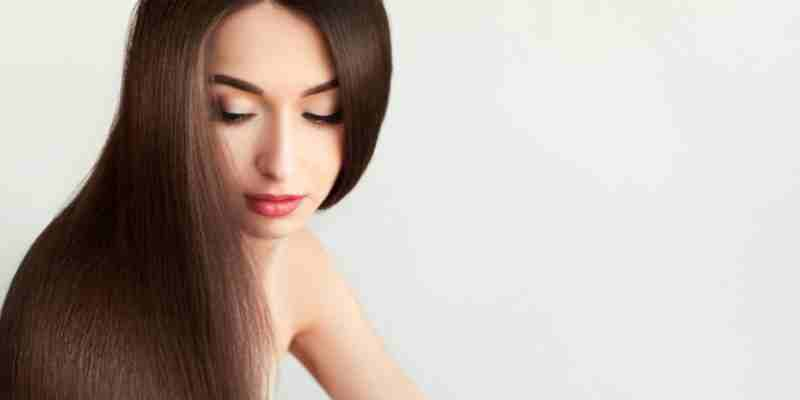Hair thickness is probably an area of concern among many people regardless of gender and age. Whether it is due to pollution, alopecia, or chemotherapy, hair thinning, and hair loss caused significant emotional distress among people.
Since here plays an important role in the overall appearance of humans, people have different kinds of observations regarding thick hair. Even some people who are born with thin hair, try to regrow thicker hair naturally using homemade and medical remedies.
However, the shyness of relief is that it is possible to grow one’s hair, using the right technique. And the only condition of hair growth is that the hair follicles need to be active for hair regrowth.
Whereas promoting new hair growth is one way to thicken the hair, stopping or reducing hair fall is also another effective way for the same. It is because when we can successfully reduce the amount of hair, we lose every day the overall thickness of our hair increases.
Read more about What Is Alopecia Areata? Causes and Treatments of Alopecia Areata

Though this article is telling you different ways to regrow thicker hair naturally, we would also focus on the ways that stop hair fall to an optimum extent so that you can get double the benefit and grow your hair thicker faster.
But Before That Know Why We Lose Hair
Hairfall can occur due to a variety of reasons, including genetics, hormonal changes, medical conditions, and certain medications.
One of the most prevalent causes of hair fall is a condition called androgenetic alopecia, or pattern baldness. This is caused by a combination of genetic predisposition and hormones and results in hair thinning and eventual hair loss on the scalp.
Read more about What Is Finasteride? The Use of Finasteride for Hair Loss
Other possible causes of hair fall include:
- Alopecia areata, an autoimmune disorder that causes hair loss on the scalp and body
- Telogen effluvium, a condition in which hair falls out due to stress or hormonal changes
- Nutritional deficiencies, such as a lack of iron or protein in the diet
- Medical conditions such as thyroid problems, lupus, or diabetes
- Certain medications, including those used to treat cancer, high blood pressure, and depression.
Hair fall can also be caused by physical or chemical damage to the hair, such as from excessive heat styling or chemical treatments, or from tight hairstyles that pull on the hair.
Discussing The Factors That Cause Hairfall
Now since we know there are multiple reasons why hair loss takes place, we must also know how the factors impact hair loss before we know how to stop them.
Genetics:
Genetics plays a significant role in hair loss, particularly in the development of androgenetic alopecia.
The genetic component of androgenetic alopecia is inherited from both the mother and father, and it typically affects individuals who have a family history of baldness. The condition is linked to the presence of certain genes, specifically the androgen receptor gene and the hair growth cycle-related gene.
When these genes are present, they can cause the hair follicles to become sensitive to the hormones that promote hair growth, and as a result, hair follicles will shrink and produce thinner and shorter hair. Eventually, the hair follicles may stop producing hair altogether.
Read more about What Is Scalp Folliculitis- Symptoms, Treatments, Prevention and More to Know.
Hormonal Changes:
Hormones play a major role in the growth and development of hair, and changes in hormone levels can affect the health and growth of hair follicles.
One of the most common hormonal causes of hair loss is androgenetic alopecia (AGA). This condition is caused by a combination of genetics and hormonal changes, specifically the presence of an enzyme called 5-alpha reductase, which transforms testosterone into dihydrotestosterone.
DHT causes hair follicles to shrink, producing thinner and shorter hair, and eventually, the hair follicles may stop producing hair altogether.

Other hormonal causes of hair loss include:
- Pregnancy and childbirth can cause temporary hair loss due to changes in hormone levels
- Menopause, which can cause hair loss due to a decrease in estrogen levels
- Polycystic ovary syndrome (PCOS), is a hormonal disorder that can cause hair loss due to an excess of androgens (male hormones)
- Thyroid problems, which can cause hair loss due to changes in thyroid hormone levels
- Hormonal changes due to medications, such as birth control pills, antidepressants, and blood pressure medications
Medications:
Certain medications can cause hair loss as a side effect. Medications that can cause hair loss include:
- Blood thinners: Medications such as warfarin can cause hair loss because they prevent blood clots and increase blood flow to the scalp which can damage the hair follicles.
- Cancer treatments: Chemotherapy and radiation therapy can cause hair loss because they target rapidly dividing cells, such as cancer cells, but also affect the hair follicles which are rapidly dividing as well.
- Hormone therapies: Medications that alter hormone levels, such as birth control pills, can cause hair loss by changing the balance of hormones in the body.
- Antidepressants: Certain antidepressants, such as Prozac and Paxil, can cause hair loss as a side effect.
- Beta-blockers: Medications used to treat high blood pressure and heart conditions, such as propranolol, can cause hair loss.
- Vitamin A: High doses of vitamin A can cause hair loss, as well as skin and nail changes.
It’s important to note that the hair loss caused by these medications is usually temporary and hair will regrow once the medication is discontinued or the dosage is reduced. If you’re concerned about hair loss, it’s always suggested to consult with your doctor. They can help you identify if the hair loss is caused by the medication, and recommend the appropriate treatment.
Knowing The Best Remedies To Control Hair Loss Caused By Different Factors
How To Stop Hair Loss Caused By Genetics?
Androgenetic alopecia (AGA) is caused by a combination of genetics and hormones. There are several options to try to slow down or stop hair loss caused by genetics:
- Medications: Finasteride (Propecia) and minoxidil (Rogaine) are FDA-approved medications that can help slow down or stop hair loss caused by genetics. Finasteride is a pill that is taken daily and works by blocking the production of a hormone that causes hair loss. Minoxidil is a topical solution that is applied to the scalp twice a day and works by increasing blood flow to the hair follicles, which can help to promote hair growth.
- Hair Transplant: A hair transplant is a surgical procedure that involves replacing hair follicles from one part of the scalp to another. This procedure can be effective in restoring hair growth in areas affected by hair loss caused by genetics.
- Platelet-rich plasma therapy (PRP): PRP is a non-surgical treatment that involves injecting a patient’s blood plasma, rich in platelets and growth factors, into the scalp to promote hair growth.
- Laser Therapy: Low-level laser therapy (LLLT) uses light to stimulate hair growth. LLLT is a non-invasive treatment that can be used to help prevent hair loss and promote hair growth.
Read more about Causes Of Hair Loss In Teenagers: Treatment And Prevention
How To Stop Hair Loss Caused By Hormonal Changes?
Hair loss caused by hormonal changes can be difficult to stop, but several options can help slow down or stop hair loss apart from medications and hair transplants. They are:
- Hormone therapy: Hormone therapy can help balance hormones in the body, which can slow down or stop hair loss caused by hormonal changes. This may include taking medications such as birth control pills or using topical hormone creams.
- Nutritional supplements: Certain supplements, such as biotin, iron, and fish oil, may help promote hair growth.
- Scalp micro pigmentation: Scalp micro pigmentation is a non-surgical hair loss treatment that involves adding pigments to the scalp to create the appearance of hair follicles. This can help to create the deception of a fuller head of hair.
How To Stop Hair Loss Caused By Medications?
If you suspect your medication is causing hair loss, the first step is to speak with your healthcare provider. They may be able to switch you to a different medication that does not have hair loss as a side effect or adjust your dosage to reduce or stop hair fall.
Other things that can help prevent hair fall caused by medication include:
- Maintaining a healthy diet that is rich in protein, iron, and other nutrients.
- Reducing stress through exercise, yoga, or other stress-reduction techniques.
- Using gentle hair care products and avoiding harsh chemicals or heat styling.
- Applying a gentle, nourishing shampoo and conditioner that is designed for hair loss.
- Using hair growth supplements such as biotin, iron, zinc, and vitamins B and D under the guidance of a doctor
- Administering minoxidil or finasteride (under the guidance of a doctor) is also known to be effective in treating hair loss caused by medication.
It’s important to remember that hair loss caused by medication can be temporary and that your hair will likely grow back once you stop taking the medication or if your healthcare provider changes your medication.

Natural Ways To Stop Hair Loss
Stopping hair loss is an important step in promoting hair growth, as ongoing hair loss can make it difficult for new hair to grow in its place. Several things can be done to help stop hair loss to promote hair growth, including:
Maintaining a healthy diet:
A healthy diet can help stop hair loss by providing the body with the essential nutrients it needs to support healthy hair growth. Some specific nutrients that are important for hair health include:
- Protein: Hair is made up mostly of a protein called keratin, so it’s important to consume enough protein in the diet to support hair growth. Good sources of protein include lean meats, fish, eggs, and beans.
- Iron: Iron is necessary for the production of hemoglobin, which carries oxygen to the hair follicles. Iron deficiency and anemia can lead to hair loss, so it’s important to include iron-rich foods in the diet, such as leafy greens, red meat, and fortified cereals.
- Zinc: Zinc is necessary for cell growth and repair, which is important for healthy hair growth. Good sources of zinc include oysters, beef, and pumpkin seeds.
- Biotin: Biotin is a B vitamin that helps to form the building blocks of hair, skin, and nails. Good sources of biotin include eggs, nuts, and leafy greens.
- Vitamin D: Vitamin D is important for overall health, including the health of the hair. Good sources of Vitamin D include fatty fish, mushrooms, and fortified foods.
Avoiding Some Hairstyles And Heat styling:
Avoiding certain hairstyles and heat styling can help stop hair loss by reducing the amount of stress and damage that is put on the hair and scalp. Here are a few specific ways that this can be done:
- Avoid tight hairstyles: Hairstyles that put a lot of tension on the hair, such as tight ponytails or braids, can cause hair to break or fall out. These hairstyles can also cause a condition called traction alopecia, which is hair loss that occurs as a result of constant pulling or tension on the hair.
- Avoiding heat styling: Heat styling tools, such as irons, and blow dryers, can harm the hair by breaking down the protein bonds that make up the hair. This can lead to dry, brittle hair that is more prone to breakage and hair loss.
- Using heat protectants: If you can’t avoid heat styling, it’s important to use heat protectant products to help minimize damage to your hair. These products can help to create a barrier between your hair and the heat, which can help prevent damage.
- Avoiding chemical treatments: Chemical treatments such as coloring, bleaching, and perming can also cause damage to the hair and make it more prone to breakage and hair loss. If you must use these treatments, be sure to use them infrequently and in moderation, and use products specifically formulated to protect your hair during the process.
Using Sulfate-Free Shampoos
Sulfates, which are common ingredients in shampoos, can be harsh on the hair and scalp. Sulfate-free shampoos are gentler and can be less drying, which may help prevent hair loss by reducing damage and irritation to the hair and scalp. Additionally, some sulfate-free shampoos are formulated with ingredients that nourish the hair and scalp, such as keratin and argan oil, which can also help promote hair growth.
Trying Scalp Treatments
Scalp treatments, such as scalp exfoliants, massages, and masks, can help improve the health of the scalp and promote hair growth. Scalp exfoliants, such as scrubs made with ingredients like sugar or sea salt, can help remove dead skin cells and other buildups on the scalp, which can clog hair follicles and inhibit hair growth.
Scalp massages can increase blood flow to the scalp, nourishing the hair follicles and promoting growth. Scalp masks, made with ingredients like coconut oil or argan oil, can moisturize and nourish the scalp, which can help improve the health of the hair follicles.
Using Wooden Comb
Using a wooden comb can help prevent hair loss by reducing damage and breakage to the hair. Wooden combs are gentle on the hair and scalp, and they can help distribute the scalp’s natural oils throughout the hair, which can moisturize and strengthen the hair. Additionally, wooden combs can help remove tangles and knots without causing damage to the hair.
It’s also recommended to use a wide-toothed comb to detangle the hair especially when it is wet.
How To Regrow Thicker Hair Naturally?
It is possible to increase the thickness of hair through several natural methods that can be used daily, including:
- Scalp Massage: Scalp massages promote hair growth by increasing blood flow to the scalp, which in turn delivers oxygen and other necessary nutrients to the hair follicles. This helps to strengthen the hair and promote growth. Additionally, scalp massages can help to remove dead skin cells and other debris from the scalp, which can clog hair follicles and inhibit growth. Regular scalp massages may also help to reduce stress, which can harm hair growth.
- Coconut Oil: Coconut oil is a rich source of fatty acids, vitamins, and minerals that can promote hair growth. When applied to the hair and scalp, coconut oil can penetrate the hair shaft to moisturize and nourish the hair from the inside out. This can help to strengthen the hair, reduce breakage, and promote growth. Coconut oil also contains lauric acid, which has been found to penetrate the hair shaft and provide deep moisturization, resulting in stronger and healthier hair. Additionally, coconut oil has been shown to have antimicrobial properties, which can help to keep the scalp clean and healthy and prevent hair loss caused by infections or dandruff.
- Viviscal: Viviscal is a dietary supplement that is marketed to promote hair growth. The active ingredients in Viviscal include the marine complex AminoMar, vitamins, and minerals.
AminoMar marine complex is a blend of fish proteins, minerals, and shark cartilage. This marine complex is said to nourish the hair follicles by providing the hair with the necessary nutrients for growth, including amino acids, minerals, and collagen.
Vitamins such as Vitamin C, biotin, and zinc, which are also included in Viviscal, are known to promote hair growth and overall hair health. Vitamin C acts as an antioxidant, helping to protect hair from damage caused by free radicals, while biotin and zinc are essential for healthy hair growth.
- Fish Oil: Fish oil is a rich source of omega-3 fatty acids, which are essential for hair growth. These fatty acids help to nourish the hair follicles and provide the hair with the necessary nutrients for growth. They can also help to reduce inflammation in the scalp, which can inhibit hair growth.
Fish oil contains two main types of omega-3 fatty acids, EPA (eicosapentaenoic acid) and DHA (docosahexaenoic acid) which are known to promote hair growth. They do this by improving blood circulation to the scalp, which helps to deliver oxygen and other necessary nutrients to the hair follicles. This can help to strengthen the hair and promote growth.
Fish oil also has anti-inflammatory properties, which can help to reduce inflammation in the scalp and prevent hair loss caused by conditions such as dandruff and psoriasis. Additionally, fish oil can help to moisturize the hair and scalp, which can prevent dryness and breakage.
- Onion Juice: Onion juice is believed to promote hair growth by increasing blood flow to the scalp and providing the hair with the necessary nutrients for growth. Onion juice contains high levels of sulfur, which is known to be an important mineral for hair growth. Sulfur can help to improve the production of collagen, which is a protein that helps to strengthen the hair and promote growth.
Onion juice also contains high levels of antioxidants, which can help to protect the hair from damage caused by free radicals. These antioxidants can also help to reduce inflammation in the scalp, which can inhibit hair growth.
Onion juice has been traditionally used as a remedy for hair loss, thinning hair, and promoting hair growth. It is said to have antimicrobial properties that can kill bacteria and fungi, which can cause scalp infections and hair loss.
- Rosemary Oil: Rosemary oil is believed to promote hair growth by increasing blood flow
to the scalp and providing the hair with the necessary nutrients for growth. It contains compounds that can help to strengthen the hair and promote growth.
The oil is rich in antioxidants, which can help to protect the hair from damage caused by free radicals. These antioxidants can also help to reduce inflammation in the scalp, which can inhibit hair growth.
Rosemary oil also has antimicrobial properties, which can help to keep the scalp clean and healthy and prevent hair loss caused by infections or dandruff. Additionally, rosemary oil can help to moisturize the hair and scalp, which can prevent dryness and breakage.
It is also said to be a natural DHT blocker, DHT (dihydrotestosterone) is a hormone that is responsible for hair loss, by blocking DHT rosemary oil may help to prevent hair loss and promote hair growth.
SOME FREQUENTLY ASKED QUESTIONS REGARDING HAIR REGROWTH
Can My Hair Regrow After Alopecia?
The good news is that hair can regrow after alopecia, but the extent of regrowth and the time it takes can vary greatly from person to person. Some people may experience only a small amount of regrowth, while others may experience full regrowth. Treatment options for alopecia include topical and oral medications, such as corticosteroids, minoxidil, and anthralin. In some cases, a hair transplant may be an option.
Do I Need To See A Doctor To Increase Hair Growth?
If you are experiencing hair loss or slow hair growth, it is a good idea to see a doctor or a specialist in hair loss. They can help to determine the cause of your hair loss and recommend appropriate treatment options. Your doctor can perform a physical examination, take a medical history, and may also perform blood tests to check for any underlying medical conditions that may be causing your hair loss. If a medical condition is causing your hair loss, your doctor may prescribe medication or other treatment to address the underlying issue.
CONCLUSION
It’s important to understand that hair loss is a natural process and can be caused by many factors, including genetics, aging, hormonal changes, and certain medical conditions. A certain degree of hair loss is normal and can be expected as part of the hair growth cycle.
Stressing about hair loss can contribute to further hair loss. Stress can cause a condition called Telogen effluvium, which is a temporary hair loss caused by a change in the hair growth cycle. Stress can also cause an increase in the production of the hormone cortisol, which can lead to hair loss.
It’s important to keep in mind that there are many effective treatments available for hair loss and that many people can regrow their hair with the right treatment and proper hair care.
In summary, while hair loss can be stressful, it is important to keep things in perspective and not stress excessively about it. Instead, focus on understanding the causes of your hair loss, and work with a healthcare professional to find the best treatment option for you.
